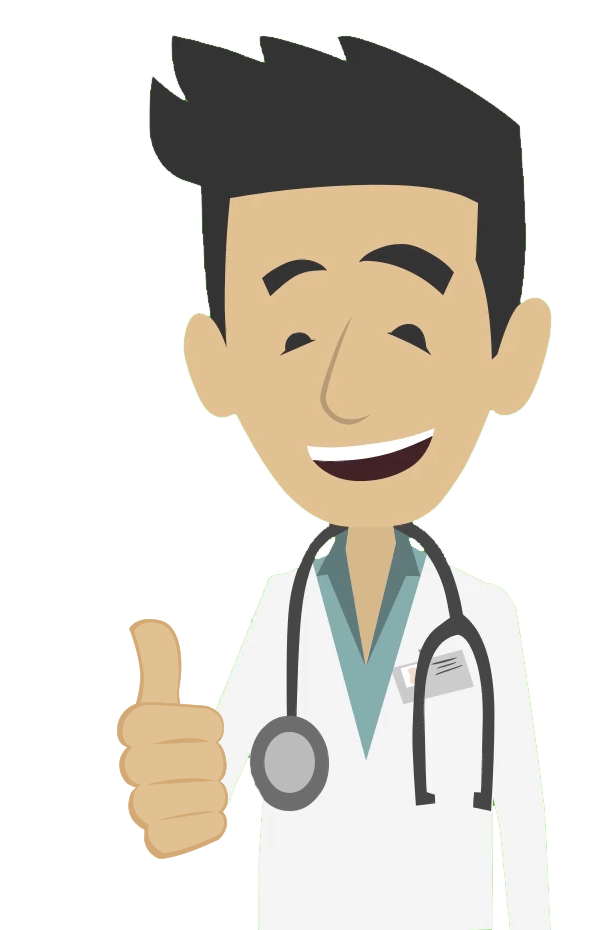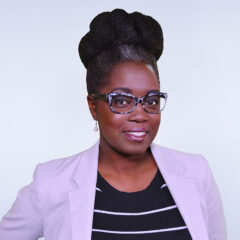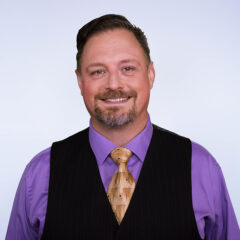Pro Tips:
How to Study Medical Topics at Home
The path to becoming a licensed physician is already not an easy one – switching from your regular med school routines to online-first instruction in such a short time only makes it more difficult. We understand, and so do our Educators! That’s why they’re sharing their advice for studying their subjects at home.

Internal Medicine
Internal Medicine is best learned in a case-based format. Whether it’s a case provided by the educator, or a case that the learner is thinking about when they are engaging in the content, clinical information is going to “stick” a lot better if it is wrapped around a specific patient’s story. If you read/watch content in the same way you’d read a book, without this clinical relevance, it’s unlikely to endure. Listen to your patients; seek to understand before seeking to be understood. Connecting to your patients and their stories, rather than a sea of diagnostic tests and data, will not only get you to the right diagnosis, but it will also help you to find meaning in your professional life.
Microbiology
Microbiology is VERY content heavy, with many opportunities to memorize factoids. This may be difficult unless one can apply the facts to a clinical scenario. Thus, a tip to study Microbiology is to follow up by doing questions and cases; this approach both cements the knowledge earned and grows the learner into a more astute clinician. Follow your passion into your chosen career, rather than allowing your ego to drive the process. Not everyone is meant to be a high-profile subspecialty surgeon. Instead, the near-absolute majority of healthcare delivery comes from primary care providers and surgeons working in the community and in academic centers. There is plenty of need and recognition available for everyone, no matter what health career they pursue. Thus, do yourself a favor and pursue the career that makes you MOST happy and satisfied.
Physiology (Nursing)
Even when using digital learning tools, don’t be afraid to follow along with pen and paper. Also, many of the topics in physiology are detail heavy. The great thing about Lecturio is the lectures are in short, bite-sized pieces so that you can incrementally digest the information (instead of trying to take in over an hour of content all at once). By separating the lectures into specific topics, you can spend more time on the concepts that you find harder to understand or remember. Don’t be afraid to learn more. As your career field involves working with (and possibly on) people, you can never know too much. Be deliberate in your approach to learning and try to get the most out of it. And remember, once school is over, the learning will not stop.
Psychiatry
While much of psychiatry relies on developing a positive therapeutic rapport with patients, studying at home offers many benefits. This is a special time to read about the history of psychiatry and its evolution throughout the centuries and decades. Paying particular attention to the different psychological theories and models can really help students to better understand complex topics before applying them to therapy settings with patients. It’s also a great time learn more about the biological models of illness and complex psychopharmacology. When attempting to master any medical subject, the best pro tip for study at home is to take the time to access as many questions or simulated exams as possible to test your knowledge and then go back and read more on topics that presented a challenge.
Embryology
Embryology is difficult because there are many new (and complex!) terms with which students have to contend, as well as the four dimensional nature of changing structures over time. To learn embryology well, focus on making it yours: explain the processes to a friend (or patient pet), re-organize the content, sculpt structure from clay or draw them out. Don’t leave information on the screen; take it in and then put it back out into the world. Collaborating with Lecturio gave me the opportunity to organize a full course in embryology in a way that starts with the basics and then delves deeply in the formation of the human body. While creating this course I generated many questions that I’d never considered before and I came out of the process better informed and more profoundly awed at the process of human development.
Infectious Diseases
The best tip I can give about studying the huge area of Infectious Diseases online is to rely less on rote memorization of facts which lasts only until some exam and rely more on the understanding of a subject. You may forget some of the details, but if you truly understood a subject once, it’s easy to bring the details back again. The best physicians are always trying to solve a puzzle and making a correct diagnosis. Any idiot can look up the treatment, but it takes a doctor to make the diagnosis. Seventy percent of diagnoses are made by taking an excellent history which requires organized thinking and listening carefully to the patient. The old adage, “Listen to the patient; he is telling you the diagnosis,” is so true.
Emergency Medicine
Keep studying! It’s so easy to get sidetracked by everything going on right now, but with just a bit of thought and planning, you can take advantage of this lull in clinical teaching to solidify your conceptual understanding of important topics in medicine. Set up a study plan – just a bit each day will be enough – and stick to it! Do what you’re passionate about – you’ll only really excel in your career if you care deeply about your work. So find what you love and go for it!
Biochemistry
I tell my students that if you want to walk the walk, you need to talk the talk. The first thing I recommend (beyond basic prerequisites like chemistry, biology, and math) is to learn to speak the language of biochemistry. Every discipline has its own lingo and learning to speak that is critical to success. That means paying VERY careful attention to terms and using them properly. All too often students slip up because they don’t truly understand the precision of language that scientists, in general, and biochemists, in particular, use. If you don’t properly talk the talk, you’re gonna stumble on the walk.
Epidemiology
Epidemiology is a kind of superpower that can help everyone navigate the complicated modern world of rich information. Even for those who will never incorporate formal Epidemiology into their careers, our fundamental concepts can make you a more critical and discerning learner. I always encourage my students to focus on identifying biases in information. When you read published scientific papers, or even newspaper articles that present data, try applying your epidemiological knowledge to decide how trustworthy that information really is: what are the likely sources of bias? How would you have collected that data if you had had the chance? When you start to reflexively see the limitations in how information is collected, processed and presented, you can start to realize what the word “evidence” really means.
Anatomy
Mastery of anatomy comes with time and is built upon the establishment of foundational anatomic concepts. Once equipped with foundational knowledge, the learner is positioned to layer in more detailed knowledge. For example, a foundational concept of the arm is its anterior and posterior compartmentalization and that muscles in each compartment share common functions, innervation, and arterial supply. Also, grasp general muscle attachments and the joint or joints the muscle spans. Apply this knowledge to predict the function or functions of muscles rather than memorize them. If detailed knowledge of muscle attachments is expected you can readily layer this on your foundational knowledge.
Cardiology
Of course, one of the best ways to learn clinical medicine is to be involved in the evaluation and treatment of real live patients. Given the current circumstances that is not going to be possible for a period of time as yet unknown. So, for students at this time, I would suggest setting aside at least several hours each day for studying and video lectures such as those contained in the Lecturio system as a good way to do that studying in the most efficient and painless way. It also is a good idea to view the lectures a second time after some time has gone since they were first seen. This review improves the retention of the material.











